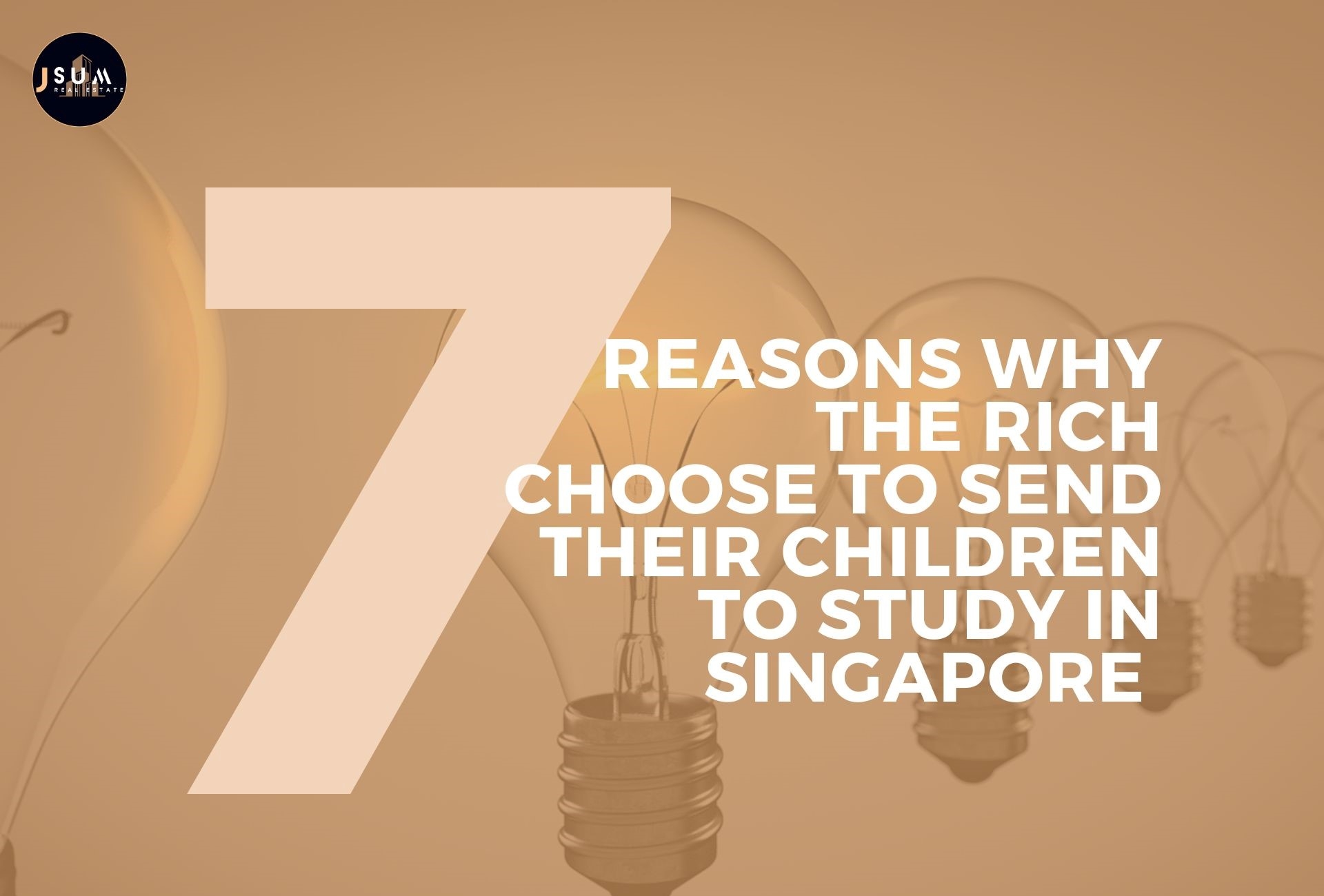1. High-Quality Education:
Singapore is renowned for its high-quality education system, delivering a curriculum that promotes critical thinking, problem-solving, and analytical skills. The city-state consistently ranks among the top in global education indices, boasting prestigious institutions that excel in academics, faculty expertise, and resources. The Ministry of Education sets high standards for all schools, providing a strong educational foundation for students.

Not only that, there are many foreigners who prefer to send their children to study International Baccalaureate (IB) programs in Singapore and the passing rate for those students are exceptionally high as compared to global standard.
Singapore schools deliver comprehensive programs focused on providing a well-rounded education. The curriculum includes core subjects, as well as opportunities for students to explore and develop their interests in various fields, such as arts, sports, and technology. This holistic approach nurtures students’ talents and fosters their personal growth.
2. Global Recognition and Prestige:
Singapore educational institutions hold global recognition and prestige. Degrees earned from reputable Singapore universities carry weight and open doors to prestigious job opportunities worldwide. Institutions like the National University of Singapore (NUS) and Nanyang Technological University (NTU) consistently rank among the top universities globally.
These institutions have a strong emphasis on research and innovation, collaborating with leading international universities and companies. Students are exposed to cutting-edge research and have opportunities to work on groundbreaking projects. This exposure to world-class research and global collaborations equips them with the skills and knowledge needed to succeed in the global job market.
3. English as the Medium of Instruction:
One significant advantage Singapore offers is the use of English as the primary medium of instruction. With English widely spoken and understood, international students, particularly those from English-speaking countries, can seamlessly adapt and integrate into the local educational system. The absence of language barriers facilitates a smoother transition and enhances the learning experience for students.
Not only does English proficiency support academic success, but it also prepares students for a globalized world where English is the lingua franca of business, academia, and international communication. By studying in an English-medium environment, students develop strong language skills and can effectively communicate and collaborate with peers from different countries.
4. Diversity and Cultural Exposure:
Singapore boasts a multicultural and cosmopolitan environment, attracting students from all over the world. The diverse student population provides unique opportunities for cultural exchange, enabling students to broaden their perspectives and develop a global mindset. Interacting with peers from different backgrounds fosters tolerance, understanding, and appreciation for diversity — invaluable qualities in a globalized world.
Singapore celebrates its multiculturalism through various cultural festivals, such as Chinese New Year, Hari Raya, Deepavali, and Christmas. Students have the opportunity to experience and participate in these festivities, deepening their understanding of different cultures and establishing lifelong friendships. This exposure to diverse cultures prepares them to thrive in international settings and adapt to diverse working environments.
5. Safe and Secure Environment:
When choosing a study destination, safety is of paramount importance for parents of affluent backgrounds. Singapore is renowned as one of the safest cities globally, boasting low crime rates, efficient public services, and strict regulations. The city-state’s commitment to ensuring safety creates a secure environment for students to live and study, offering peace of mind for both students and their families.
Singapore’s reputation for safety is backed by a well-organized police force, well-maintained infrastructure, and comprehensive healthcare services. Students can freely navigate the city on their own, with convenient public transport options that are reliable and safe. This safe environment allows students to focus on their studies and personal growth without concerns about personal safety.
6. World-Class Facilities and Resources:
Singapore educational institutions provide state-of-the-art facilities, cutting-edge technologies, and ample resources to support a comprehensive learning experience. From modern libraries equipped with vast knowledge repositories to well-equipped laboratories and research centers, students have access to top-notch resources that stimulate their intellectual growth. These facilities enable hands-on and experiential learning, encouraging students to apply their theoretical knowledge into practical applications.
Additionally, sports and recreational facilities foster a well-rounded educational experience, promoting physical and mental well-being. Singapore promotes a healthy and active lifestyle, providing students with opportunities to participate in various sports, such as tennis, swimming, football, and martial arts. These facilities not only enhance students’ physical fitness but also teach important values like teamwork, discipline, and perseverance.
7. Networking and Future Opportunities:
Singapore’s status as a global business hub creates networking opportunities for students studying in the city-state. Access to industry professionals, entrepreneurs, and potential future employers can lead to valuable connections and potential internships or job opportunities upon graduation. The wealth of professional networks and the city-state’s strong economy provide a fertile ground for future career prospects.
Singapore is home to numerous multinational corporations, financial institutions, and leading companies across various industries such as technology, finance, healthcare, and hospitality. Students studying in Singapore have the chance to network with professionals from diverse sectors through internships, industry events, and career fairs. Engaging with these networks broadens their career horizons and gives them a head start in their chosen fields.
Conclusion:
The rich choose to send their children to study in Singapore because of its high-quality education system, global recognition, cultural diversity, safe environment, world-class facilities, and networking opportunities. Singapore offers a well-rounded educational experience that prepares students for success in their future endeavors. By choosing Singapore as a study destination, affluent families provide their children with a solid foundation to thrive academically.




